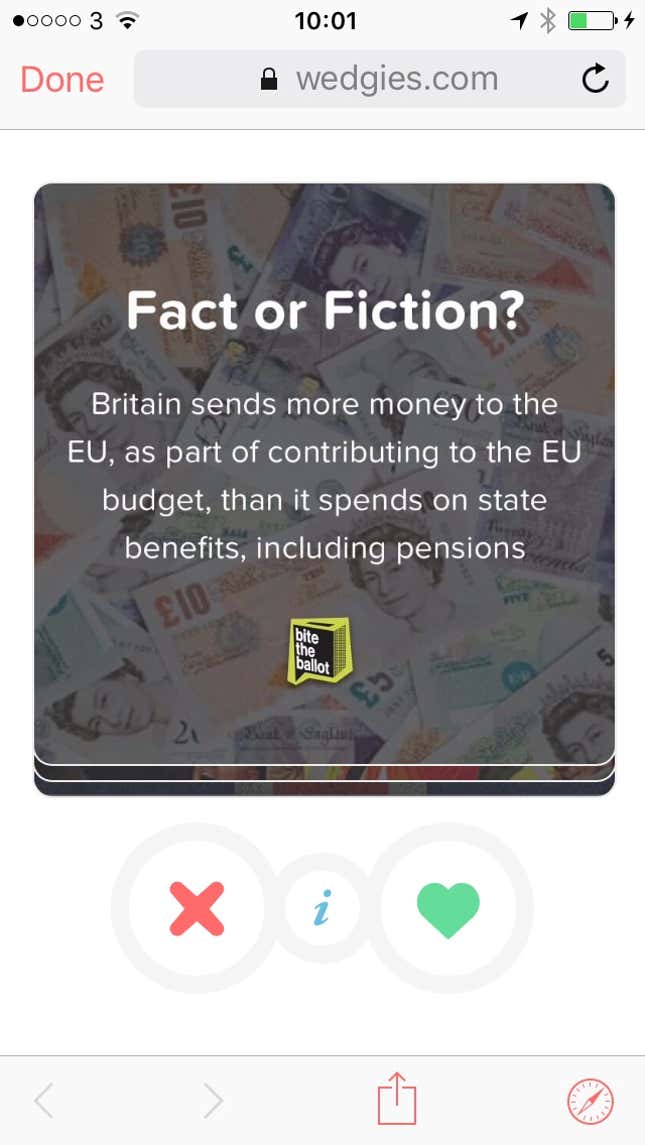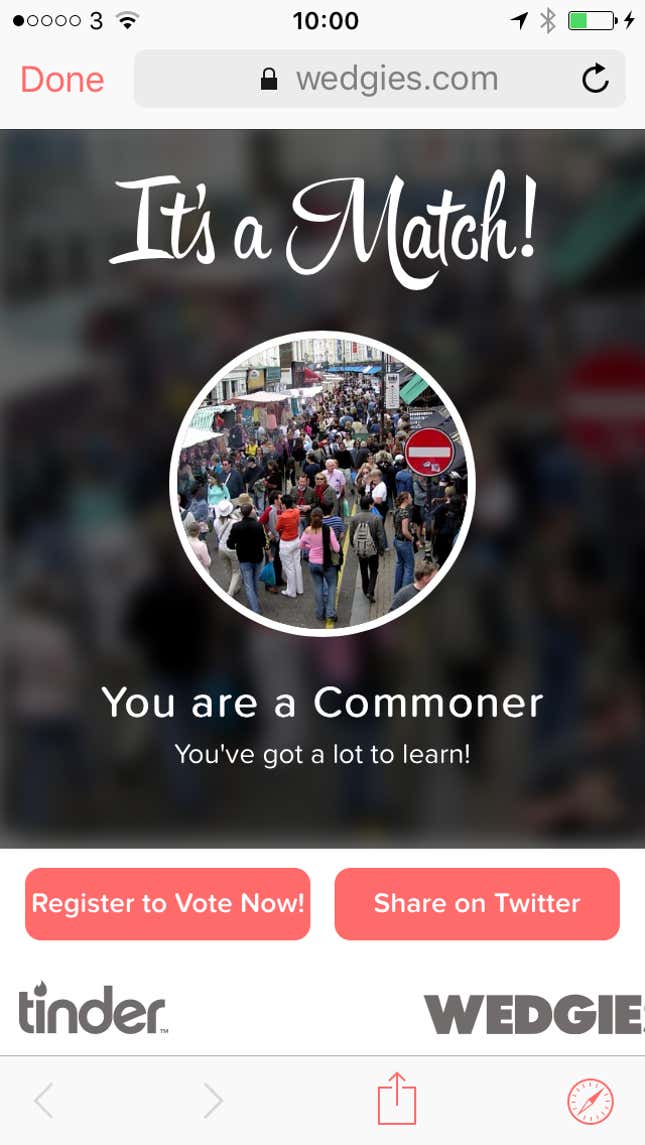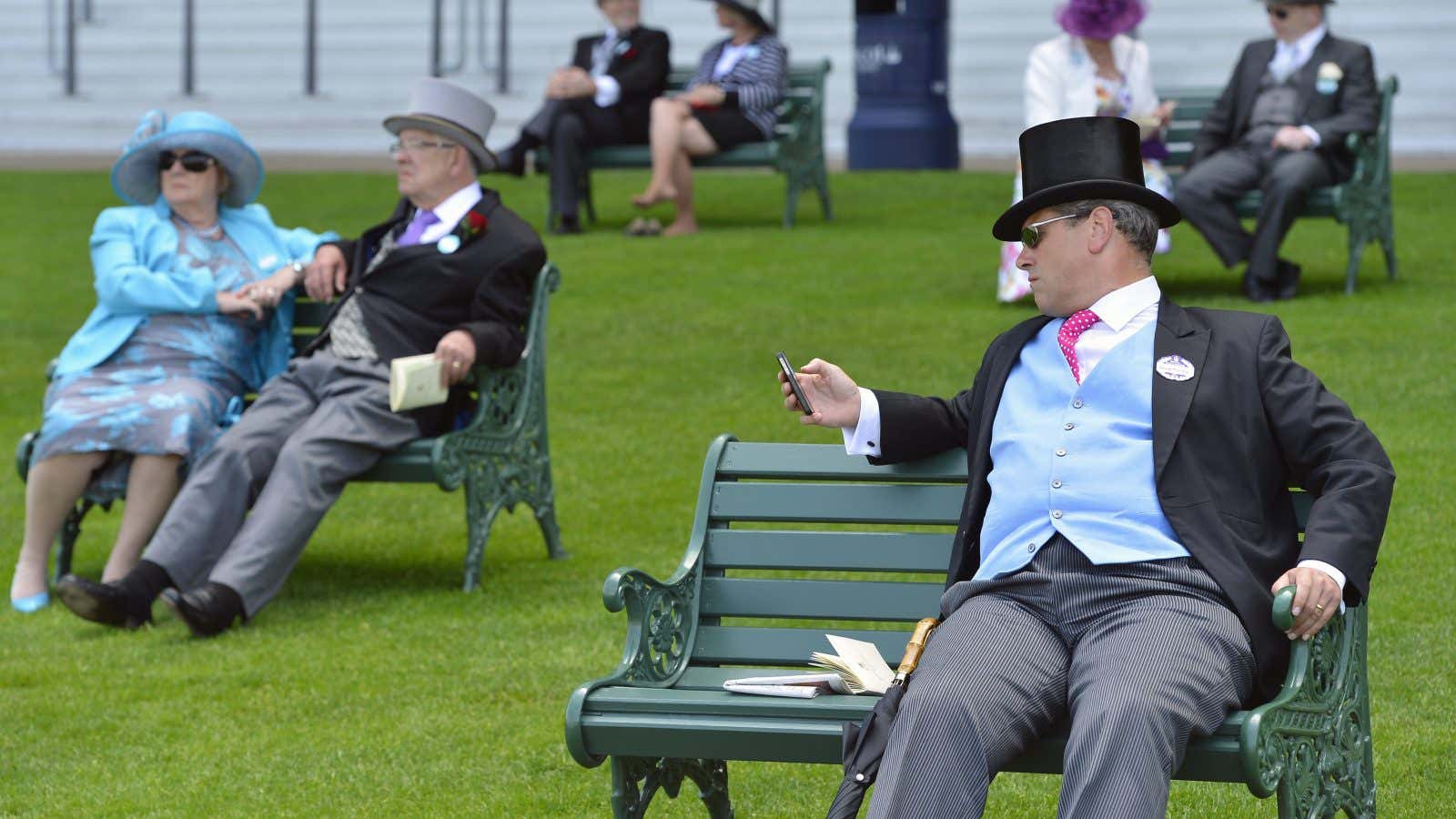As most people looking for love in the modern world know, dating apps have changed romance, sometimes beyond all recognition. But the companies, which have huge though sometimes opaque user bases, might end up changing more than sex lives. They’re delving into how users think, and may even start influencing how they vote.
To that end, Tinder rolled out a game today on the UK version of its app that doubles as a kind of civics lesson. It appears after a few swipes on potential matches: A Union Jack flag and several hands holding phones appear. It shows a series of questions about the European Union and suggests you swipe right for fact, left for fiction. Brits will vote on June 23 in a referendum to decide whether to stay in the EU or leave it.
“Fact or Fiction? EU laws are superior to laws created by the UK parliament,” it asks (the answer is yes, though the question is somewhat ambiguous). Another statement asks about the justice system:

Tinder says in a blog post: “It’s critical that millennials—who will play a major part in deciding the Referendum—are aware of the policies in place when they submit their ballots.” Poll data has found that younger people are more likely to be supportive of the UK staying in Europe. But they’re also less likely to vote.
Get the questions right and you’re called a “king” and shown a picture of George VI. Get them wrong, and you’re called a “commoner” (a distinction that might rankle with those who don’t believe class is necessarily correlated with education).

Tinder’s quiz, developed in conjunction with Bite the Ballot, a group that promotes knowledge about democracy to young people, is its latest foray into spreading civic information. In March, it ran a similar “Swipe the Vote” campaign in the US, encouraging its users to register to vote.
The information-gathering goes both ways: journalists have also taken to dating apps to crowdsource information, for example on how gay men feel about the Pope.
